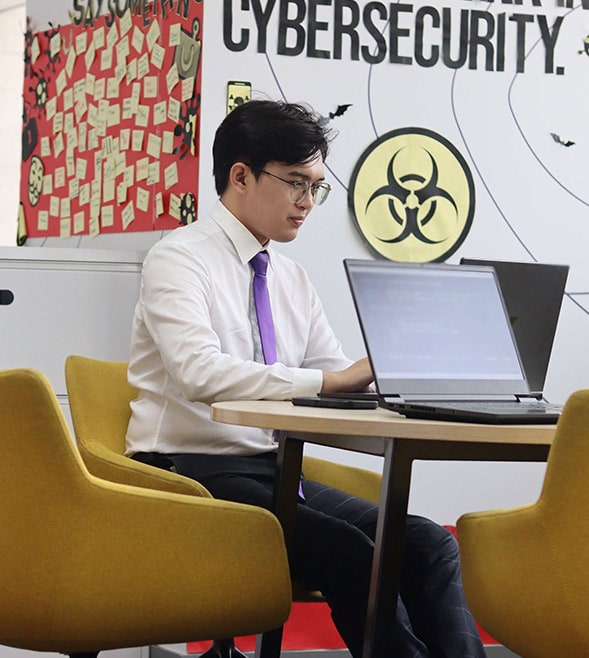From the first day at your new job to when you reach the top of the ladder, it’s likely that in between client meetings or day-to-day desk work, there will be training sessions, seminars, and other learning opportunities available to you. Businesses invest a significant amount in training and development initiatives, with both outsourced and in-house spending reaching an estimated $403.2 billion globally, according to “The State of the Corporate Training Market” report by Training Industry.
However, are organisations—and individuals—really maximising these opportunities and translating them into organisational excellence?
While it falls onto businesses to provide effective, timely, and relevant learning opportunities, it is also a personal responsibility to continually learn, undergo training, and enhance one’s skills in their chosen field or industry. Professionals must take ownership of their growth to stay relevant and effective in their roles. As individuals develop new skills, absorb fresh concepts, and broaden their perspectives, they advance their careers and become better equipped to take on leadership roles. This individual achievement, when multiplied across teams, is what will ultimately drive excellence within an organisation.
Recently, I attended my firm P&A Grant Thornton’s Leadership Development Program, a partnership with the Asian Institute of Management’s School of Executive Education and Lifelong Learning, wherein I received my postgraduate diploma in management. While this is a great personal achievement and honour, its true value lies in how I can apply what I’ve learnt moving forward: for myself, my team, and my organisation.
From training to the real world
More than just a program teaching technical knowledge, the program I recently attended opened up new perspectives and mind models that I strive to apply in both my strategic and day-to-day role. These frameworks have helped me approach challenges with more clarity and creativity and have equipped me to drive innovation and positive change within the business unit I lead and across my firm.
Attending sessions during times when you could be resting, retaining what you’ve learnt, and ultimately finding their fit is a real challenge. However, the impact is worth the effort when you begin to see how these lessons shape your decisions, influence your leadership style, and spark new ways of thinking across your team.
So, if you're considering a similar programme, I encourage you to approach it not just as a learning requirement but as an opportunity to reshape how you think, lead, and create impact, because the real value lies in how you bring those lessons to life in your everyday work.
Knowledge sharing is key
To ensure that development doesn’t stop at the individual level, knowledge sharing must be intentional, consistent, and embedded into how we lead.
Personally, I make it a point to share the concepts I’ve learnt with my team during debriefs and discussions, and I encourage them to do the same. Whether it’s a new framework or a shift in perspective, insights are most valuable when they’re passed on. I blend this with a coaching leadership style, encouraging my staff to expand their own thinking and become more self-directed in how they approach their work.
While knowledge sharing can happen organically through meetings and conversations, it’s also important to consider how learning fits into the rhythm of daily work. According to a Forbes article titled “Learning In Minutes: Delivering Training In Busy Work Environments”, the principle of “microlearning”, or delivering short, focused learning experiences within existing workflows, can make professional development more accessible and sustainable. Implementing microlearning helps ensure that knowledge is not only retained but also applied in real time across a team.
Ultimately, knowledge sharing, whether it’s through a long, sit-down session or in quick doses, is the key to multiplying the effectiveness of your organisation’s professional development initiatives.
A culture of learning
In any organisation, building high-performing teams requires leaders to model the behaviours they want to see. When leaders actively share what they learn, they help foster a culture of continuous improvement: one where people are equipped not just with the technical skills to do their jobs, but with the mindset to grow, adapt, and lead.
Within my firm, there are tailored training programmes and other professional development opportunities that address both the technical and soft skills needed at each staff level, with our Knowledge Management Group continuously providing timely sessions. This is in line with the Firm’s belief that for us to deliver our brand promise of highest quality service, the people behind it should be capable, equipped with the necessary skills and continually learning.
A culture where your people are committed to continuous learning and improvement doesn’t just benefit individual careers. It enhances the organisation’s capacity to adapt to changes, devise innovative solutions, and maintain long-term growth. Michael Hudson, CEO of Hudson Institute of Learning, stated in his Forbes article titled “Building Resilience Through Everyday Development: How Small Wins Drive Organisational Growth” that “when organisations create conditions that enable people to experience daily progress and development, they simultaneously enhance performance and build resilience.” This reinforces the idea that learning doesn’t have to be monumental to be meaningful: small, consistent efforts can lead to significant impact over time.
So, the next time you attend that training session, consider how you can make the most out of each opportunity: not only for your career and day-to-day work, but also for your work community. After all, a rising tide lifts all boats: a learning session for one can be a source of growth for many.
As published in The Manila Times, dated 17 September 2025




